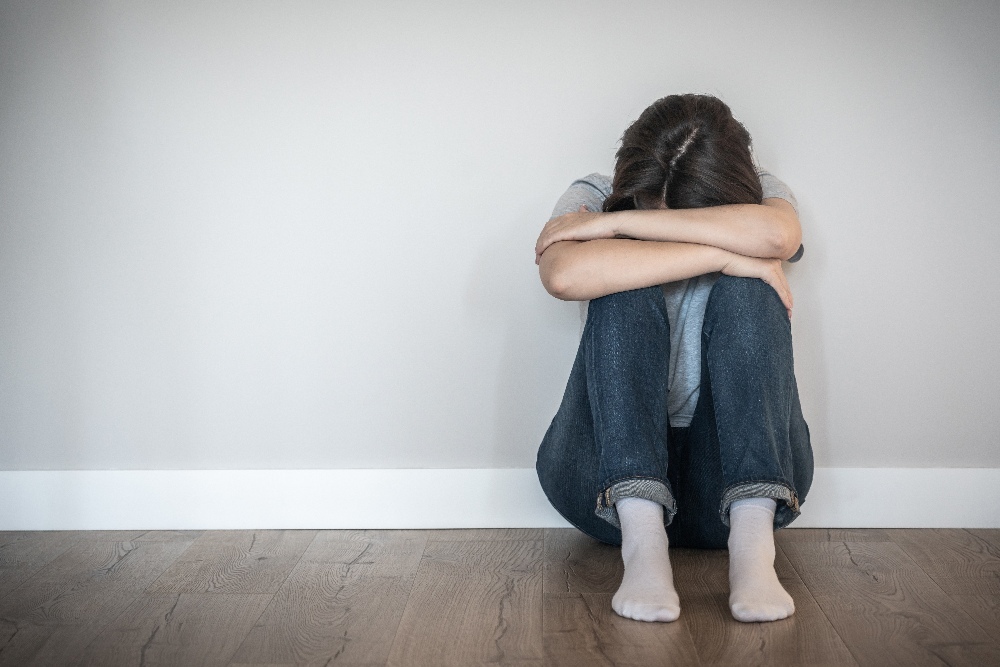The birth of a baby can cause a rollercoaster of powerful emotions. They might range from excitement and joy to sadness and feelings of emptiness and anxiety. If you feel this way all the time for more than 2 weeks, during or even after your pregnancy, you might be suffering from Postpartum Depression and it is necessary to seek out help.
What Is The Meaning Of ‘Postpartum’ Depression?
The literal meaning of “Postpartum” means post-childbirth. Postpartum depression or PPD is a serious mental illness that affects the behavior and physical health of mothers. Sad, blunted or empty feelings don’t seem to go away, which will lead to depression and interfere with your everyday life. You might not feel too connected to your newborn, have a feeling like you’re not your baby’s mother, or that you do not have feelings of love and care for your baby.
Between 50% to 80% of new mommies experience an episode of what is known as “baby blues,” which is characterized by mild but undeniable sadness, exhaustion, unstable mood, and a sense of fear.
What Are The Causes Of Postpartum Depression?
There’s not a single cause of postpartum depression, however, physical and emotional issues might play a role.
Physical Changes: Post childbirth, mothers witness a high drop in hormones (progesterone & estrogen) in the body which may contribute towards postpartum depression. Other hormones which are produced by the thyroid gland may also drop strongly. This can lead to feeling tired, quiet, slow, and depressed.
Emotional Issues: When you’re overwhelmed and deprived of sleep, you may have problems tackling even the slightest of problems. You might have feelings of anxiety over the “what ifs” of taking care of your newborn. You might feel that you’re less attractive, struggle with your sense of identity or feel that you’ve lost control over your life. Any of these issues can contribute to a woman’s mental health and thus lead to postpartum depression.
Without any treatment, postpartum depression may last up to several months or even a few years.

What Are The Symptoms Of Postpartum Depression?
Many times, postpartum depression is initially mistaken as “baby blues”. But, the signs and symptoms of PPD are comparatively more intense and more prolonged, interfering with your homeostasis and the ability to lead a normal life. Symptoms may occur earlier, during, or within the first few weeks of pregnancy.
Signs and symptoms of Postpartum Depression include:
- Unstoppable and excessive crying
- Difficulty in connecting with your baby
- Depressed mood and feeling sad, anxious, and worrisome
- Withdrawal from close friends and family
- Reduced interest in pleasurable activities
- Intense level of anger and irritability
- Feeling that you’re not good enough as a mother
- Feelings of worthlessness, guilt, or shame
- Feelings of restlessness and fatigue
- Feeling tired almost all the time
- Thoughts of harming yourself or the newborn
- Suicidal thoughts
Who Is At Higher Risk?
There are various known psychological and social risk factors. They include:
- Women from a lower social class
- Life stressors during pregnancy
- Complicated pregnancy/birth
- Difficult relationship with family or partner
- Lack of support from family or friends
- Prior history of psychopathology (depression anxiety)
- Chronic stressors postpartum (this can include problems with child care and difficult infant temperament)
- Unemployment/instability
- Unplanned pregnancy
- Ambivalence over becoming a pregnant
- Poor relationship with own mother
- History of sexual abuse
- Lack of a confidante
- Bottle feeding
- Depression during pregnancy
Conclusion
After the delivery of the newborn, postpartum depression can affect many women. Seeking treatment and talking to a therapist can benefit not only you but your family, the father, and the little one. Ensure you inform your partner or family member about your negative thoughts instead of going through it alone. If it’s help with parenting you need, consider using an app like ImmunifyMe. It can help you keep a track of your little one’s immunization schedule, enable telemedicine, and more.




![The First Trimester: How To Start This Journey Perfectly [With Extra Tips]](https://immunifyme.com/blog/wp-content/uploads/2022/01/B-1-1-440x264.png)

